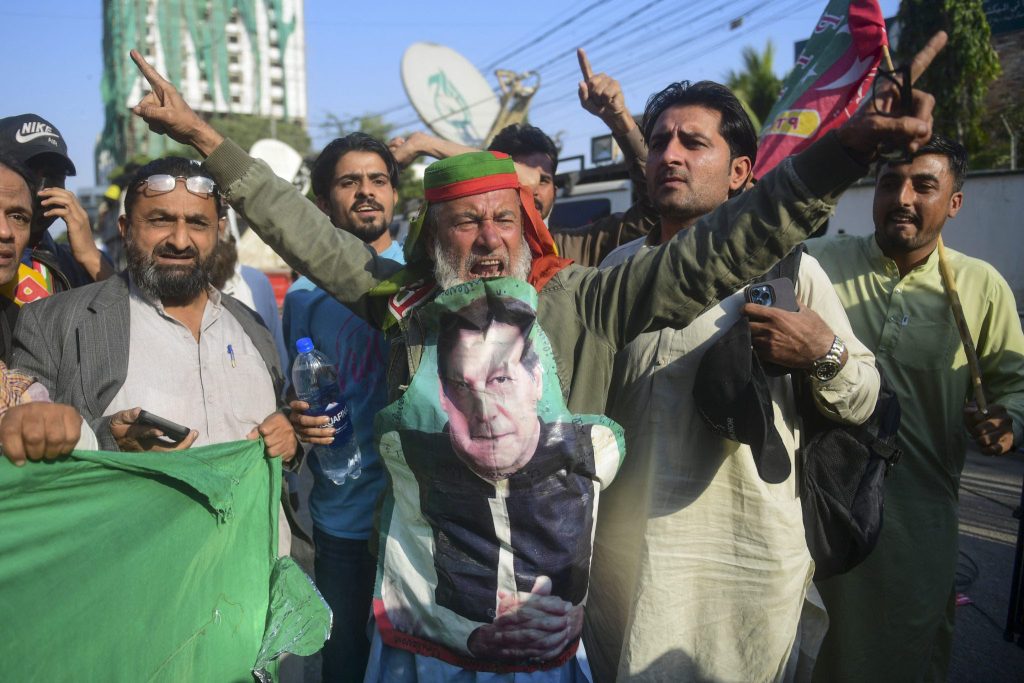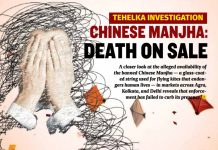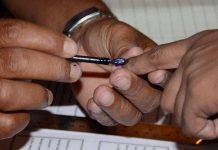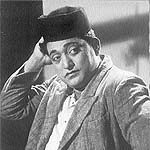Far-n-Wide :– Despite PML-N not getting a majority, Nawaz Sharif, a 3-time PM, may get another chance to lead the government with the Army’s backing. While India is circumspect, Beijing is now firmly poised to play a pivotal role in India’s north-western region. by Gopal Misra

With a hung National Assembly in the delayed 2024 polls in Pakistan, Beijing is now firmly poised to play a pivotal role, if not assertive, in India’s north-western region. In spite of his party, Pakistan Muslim League-Noon (PML-N), not getting a majority, Nawaz Sharif, a three-time prime minister, is expected to get another chance to lead his country’s civilian government. It is yet to be ascertained whether his return to power in Islamabad would ease relations with India. It is, however, certain that China would be reviving the much-delayed China-Pakistan Economic Corridor (CPEC). Despite pumping billions of US dollars in the project, it was shelved since 2018, when the cricketer-turned politician Imran Khan came to power.
The National Assembly was dissolved in August 2023, and under its basic law, the elections should have been held before the end of the year. With the failure of PML-N not getting a clear mandate, it is now preparing to form coalition governments at the federal level as well as in Punjab with the Pakistan People’s Party (PPP). With a presence of a large number of independent law makers having affiliations with Imran Khan’s Pakistan Tehreek-i-Insaf (PTI) in the National Assembly as well as in Punjab province, the political governments are expected to be much weaker to tackle financial issues and ethnic clashes, including the Jihadists led by Tehrik-i-Taliban Pakistan (TTP).

The allegations of rigging of the polls amidst countrywide violent clashes accompanied by a software, believed to have been obtained from China, for counting ballots have created doubts about the legitimacy of the elections. Further, it was a nightmare for the country with 12.8 crore voters to locate their respective polling stations due to the deliberate closure of the mobile services during the polling day. The presence of a large number of independent law makers in the National Assembly could be attributed to the fact that PTI was stripped of its electoral symbol, a cricket bat, forcing its candidates to run as independents. The country also witnessed violence on the polling day. A blast hit Balochistan, instantly killing 26 on the spot, and wounding scores of people nearby.
International Appeals Ignored
In spite of the repeated appeals of the KeepItOn coalition, a global network of over 300 organizations from 105 countries, to the caretaker Prime Minister Anwaar ul-Haq Kakar and Chief Election Commissioner Sikandar Sultan Raja, mobile services and internet were shut-down. The voters needed to send an SMS to the number 8300 to obtain details on where they should vote, but many were struggling to find the right place. It is believed a substantial number of people could not exercise their franchise.
The concern expressed by Liz Throssell, spokesperson for the United Nations High Commissioner for Human Rights, says that “We are disturbed … by the pattern of harassment, arrests and prolonged detentions of leaders of the PTI and its supporters even during the election period. Multiple legal cases have been brought against former Prime Minister Imran Khan, which have disqualified him as a candidate and sentenced him to long prison terms. We expect that the higher courts will carefully review these conclusions in line with applicable due process and fair trial rights. All eligible parties must be able to compete fairly.”
Huong Le Thu, the deputy director of the Asia program at the International Crisis Group, has cautioned that “a disputed poll would damage the incoming government’s legitimacy, leaving it ill-equipped to deal with the political and economic instability that is sure to follow.” Majid Nizami, an election analyst in Lahore, suggested that the way the elections have been conducted marks a step backward. “The impact would be negative on Pakistan’s democracy,” he cautioned.
Chinese Diplomatic Offensive
With the expected return of Nawaz Sharif back to power in Islamabad, Beijing is set to initiate a massive diplomatic initiative. Since Russians continue to be bogged down in a two-year old fratricidal war with Ukraine, Dragon’s influence in Central Asia has increased manifold. In the West Asian regions, including the Gulf countries, China is quietly emerging in an assertive role. It has already established its strong diplomatic presence by brokering peace between Saudi Arabia and Iran. Their foreign ministers were summoned to Beijing to be told to resume diplomatic ties; they meekly abided by the instructions. Also, China successfully diffused the brewing violent clashes between Iran and Pakistan in January 2024.
The initial response of the scholars and political analysts keenly watching political developments in Pakistan across the continents has been unanimous that with the army, having close ties with China, meddling in the polls and imminent return of Nawaz Sharif to power, the decks appear to have been cleared for massive financial and strategic interference of China in the region, and in Pakistan particularly. With the departure of the US-led western powers from Afghanistan, China has an open field to assert its military might and pursue its economic interests. The initial concerns regarding rigging in the polls from the U.S. and U.K. indicate that the West has already lost its clout in the region.
India’s Concern
In India, in spite of Nawaz Sharif’s pro-India rhetoric, he is not trusted by the Indian establishment irrespective of the political outfit or coalition ruling in New Delhi. The trust deficit had increased manifold following the Kargil War that too soon after the visit of the then PM Atal Behari Vajpayee.
Nawaz Sharif has repeatedly alleged that the army had initiated Kargil operations without his consent, but this time, he came to power with the help of the army. So it is quite doubtful whether he would succeed in improving Pakistan’s ties with India. Also, in spite of being sacked, humiliated, convicted and jailed, the former Pakistani PM, Imran Khan’s supporters form the strongest group in the new national Assembly. They have been elected without the party’s symbol. A number of them might be joining the ruling coalition. Khan has already congratulated his followers on X for their excellent performance in the polls. He and his supporters might not accept the verdict of the elections, thus again plunging Pakistan in a political and financial cesspool.
The poll results indicate only partial success for Nawaz Sharif. He wins a seat in Lahore, but loses to the PTI-backed Shahzada Gastasap in Mansehra constituency. Interestingly, the ISI-backed Talha Saeed, son of the dreaded terrorist Muhammad Hafiz Saeed; and Jamiat Ulema-e-Islam (F) chief, Fazlul Rehman suffered humiliation by being trounced by their rivals. Talha received only about two thousand votes. Hafiz Saeed, who had masterminded the deadly 26/11 attacks in Mumbai, recently floated Pakistan Markazi Muslim League (PMML). The PTI leader, Ali Amin Gandapur, thrashed Fazlul Rehman with 93,443 votes to 59,922 votes.
Both Bajwa and Faize Hamid are known to be against the elevation of Asim Munir. He got the coveted position of the army chief during the tenure of the coalition government led by PM, Shehbaz Sharif, younger brother of Nawaz.
Bajwa and Faize Hamid, though superannuated, continue to have a sizable following in the defence forces.
The apprehension is that the power struggle might shift from the political arena to the barracks, where Imaran Khan continues to have sizeable support. India has to be concerned with these developments in the immediate neighbourhood.












